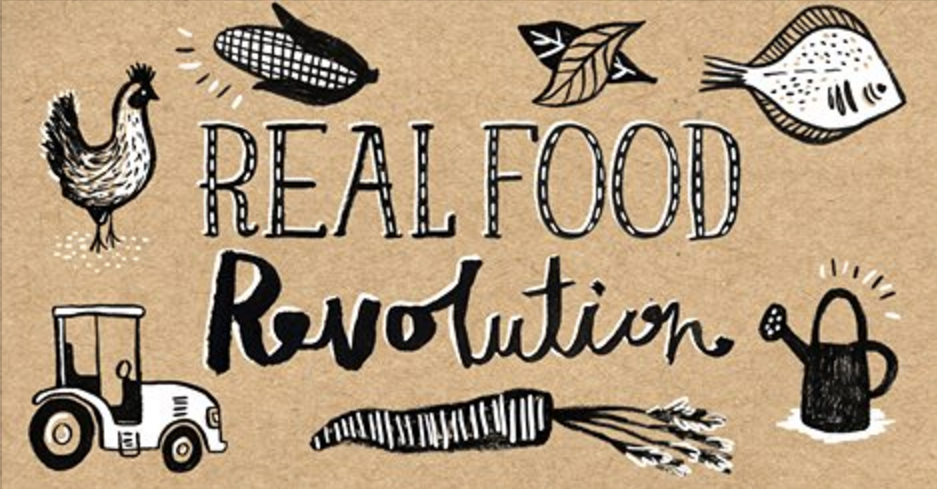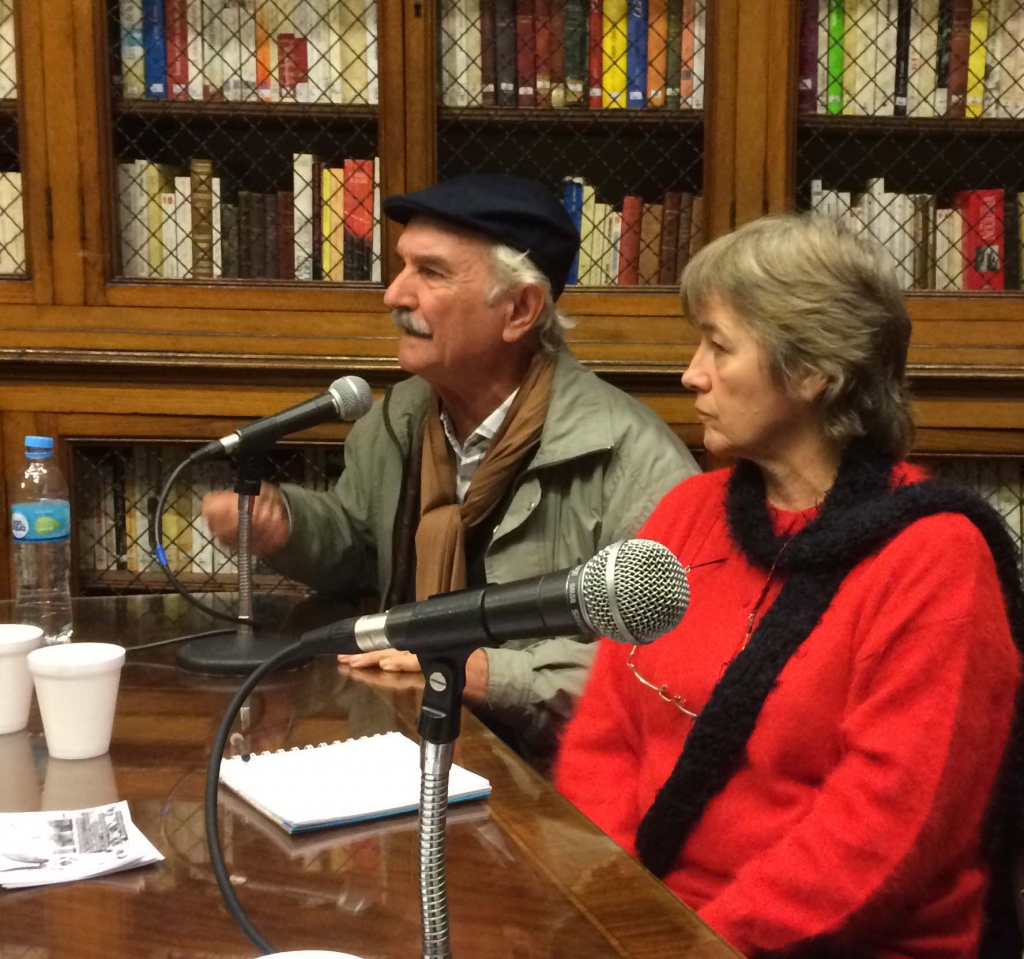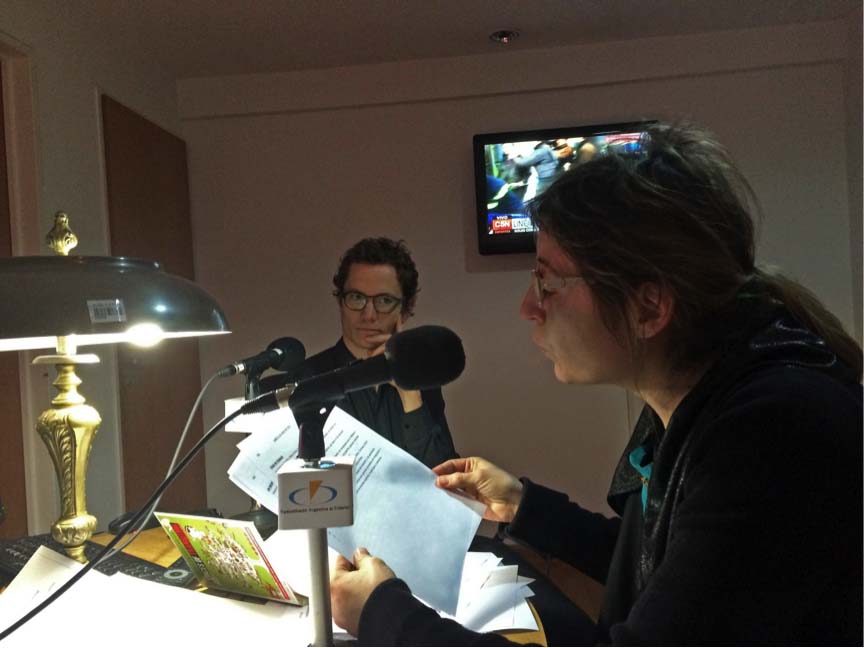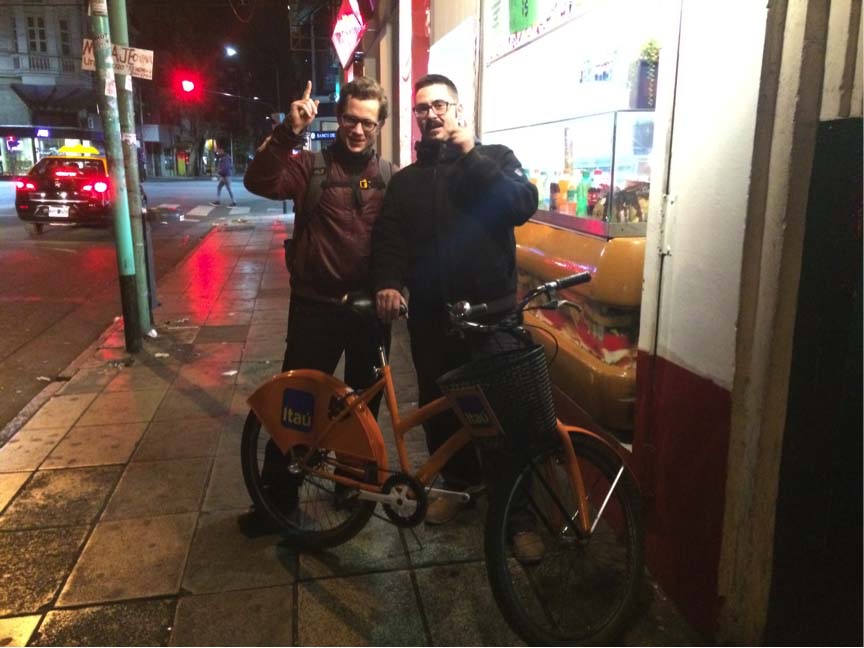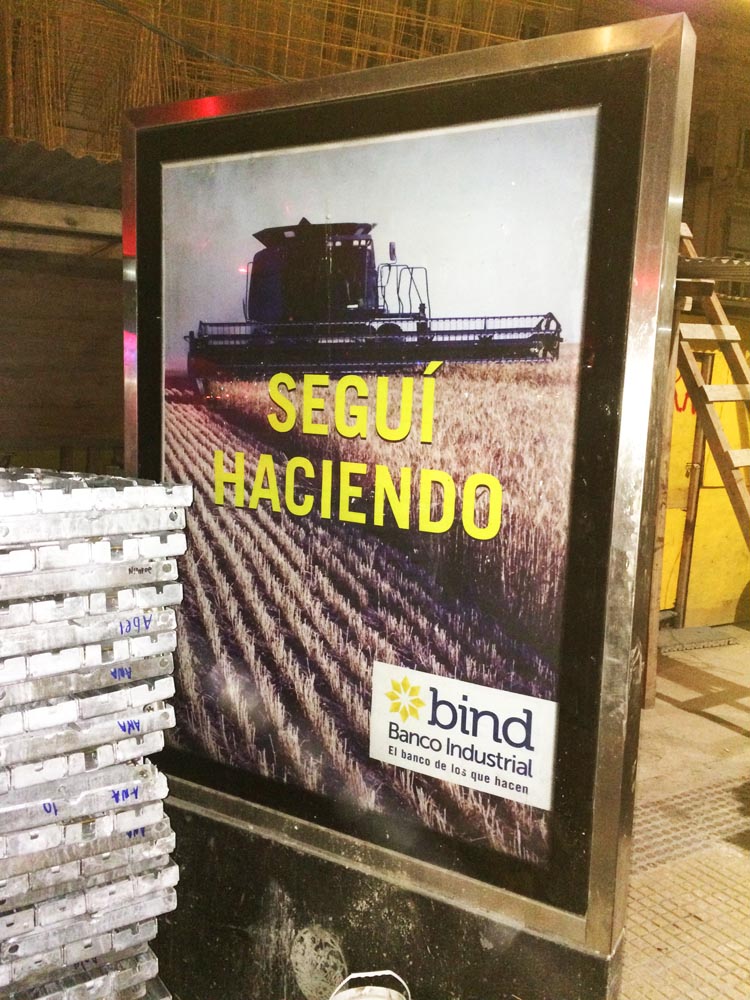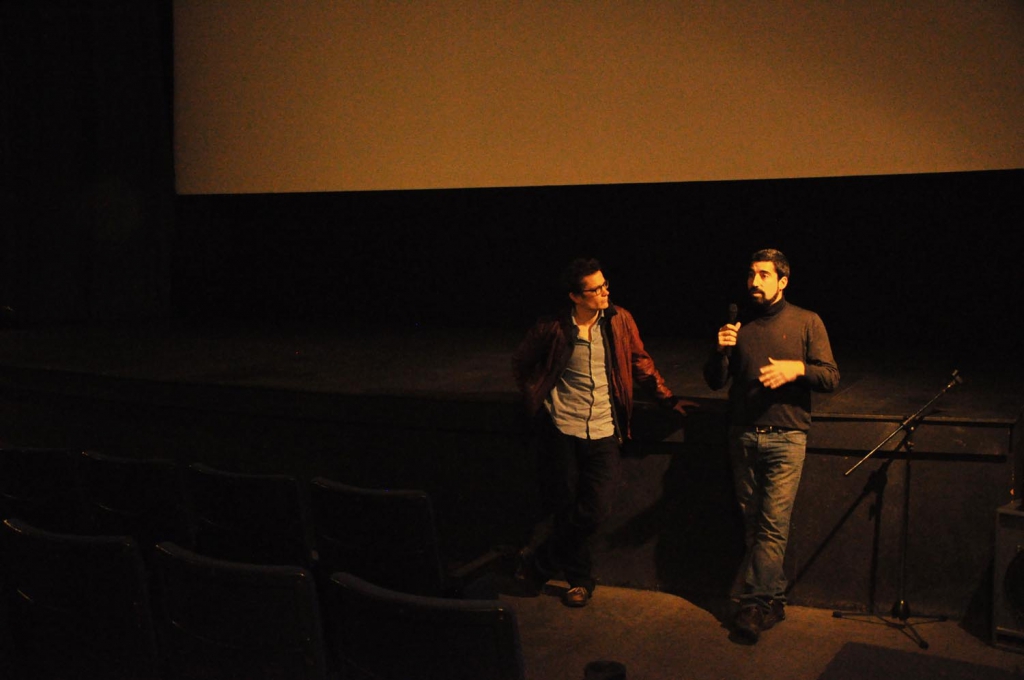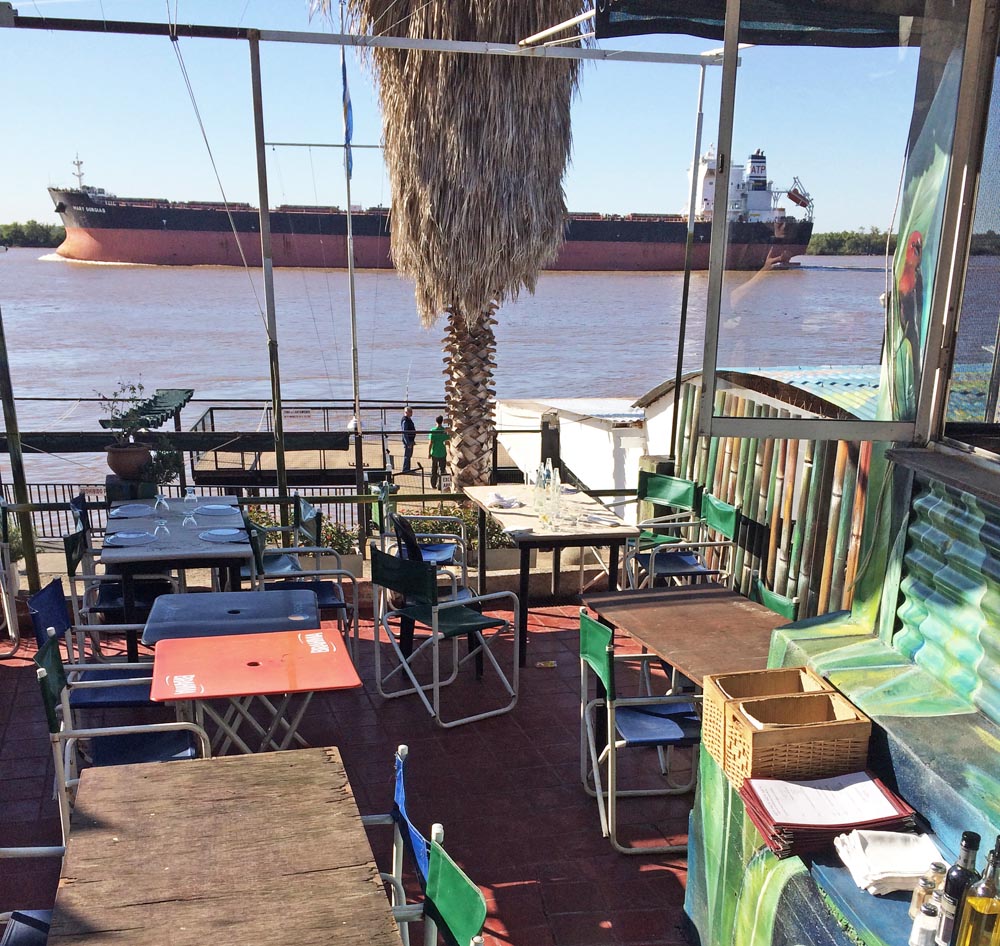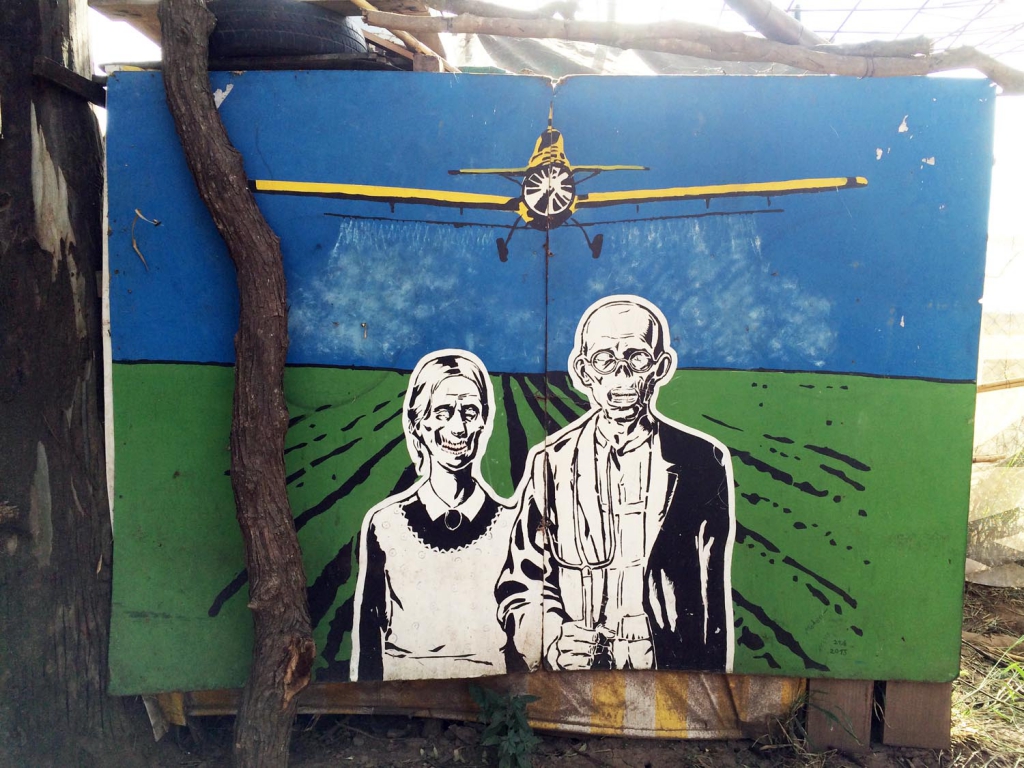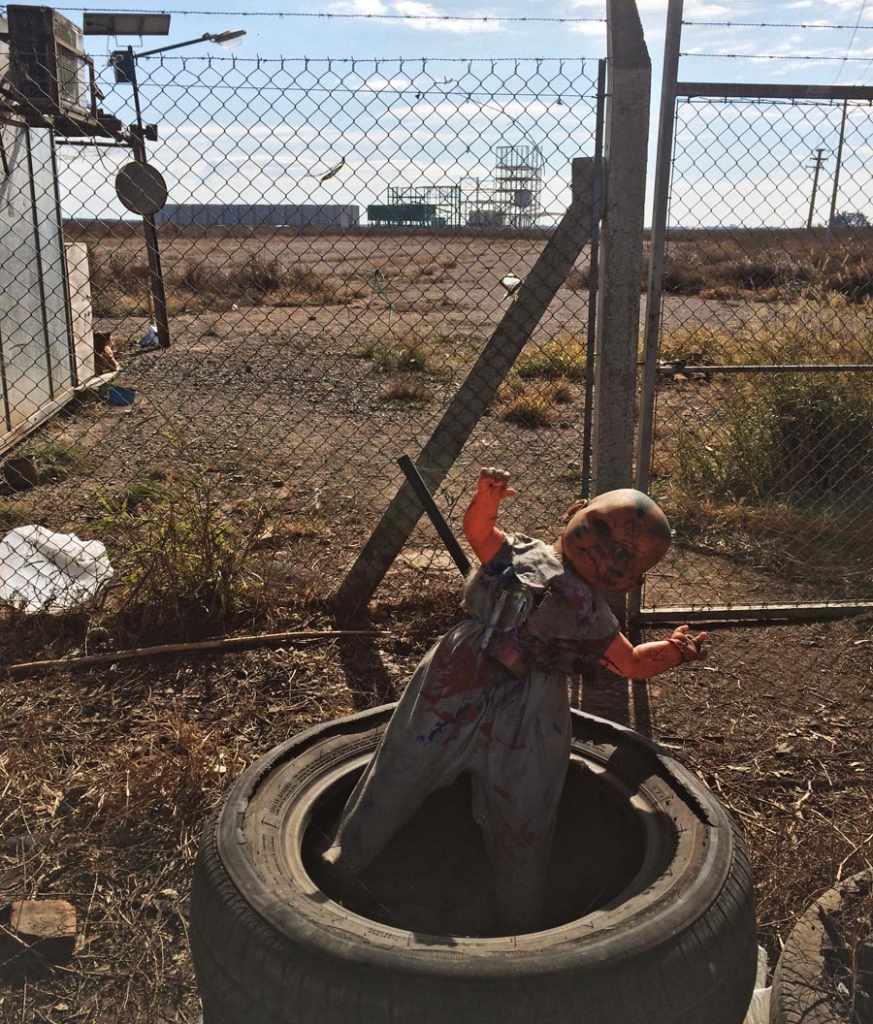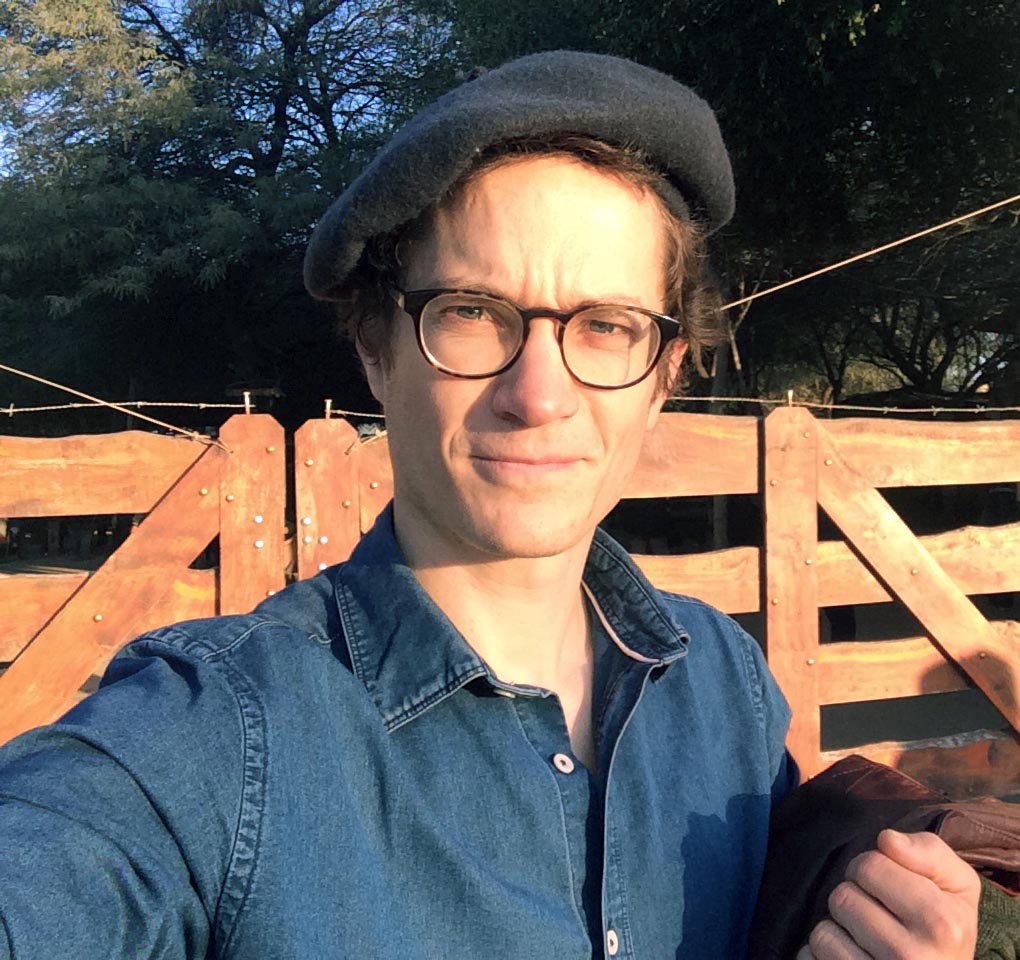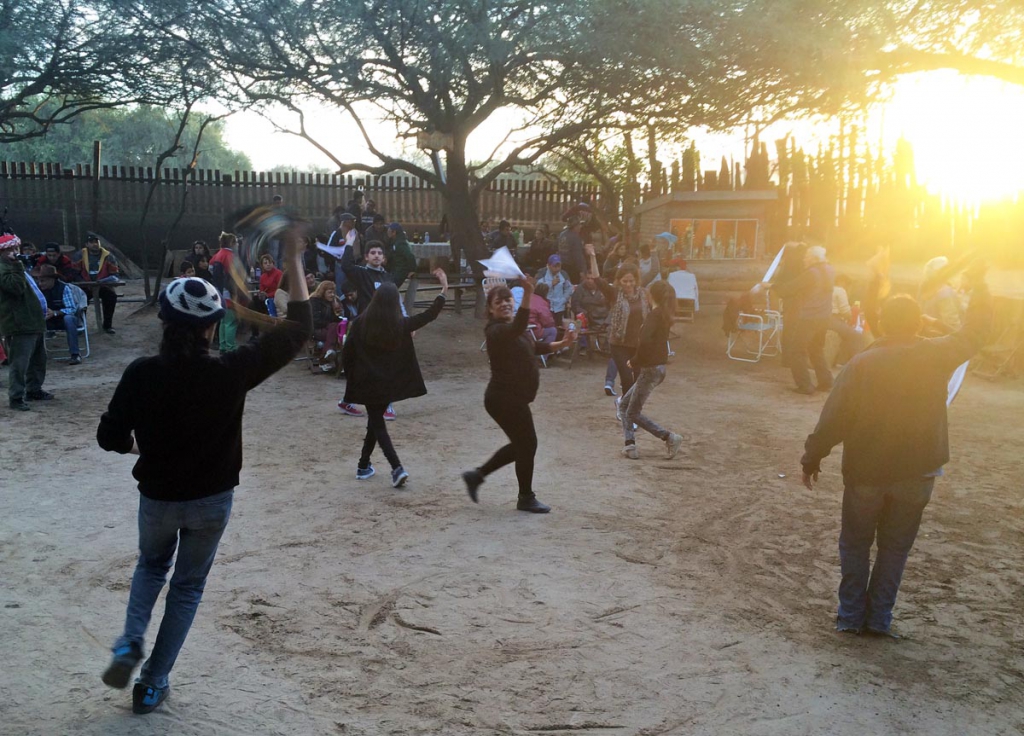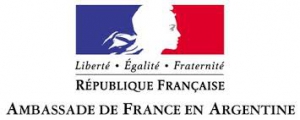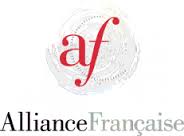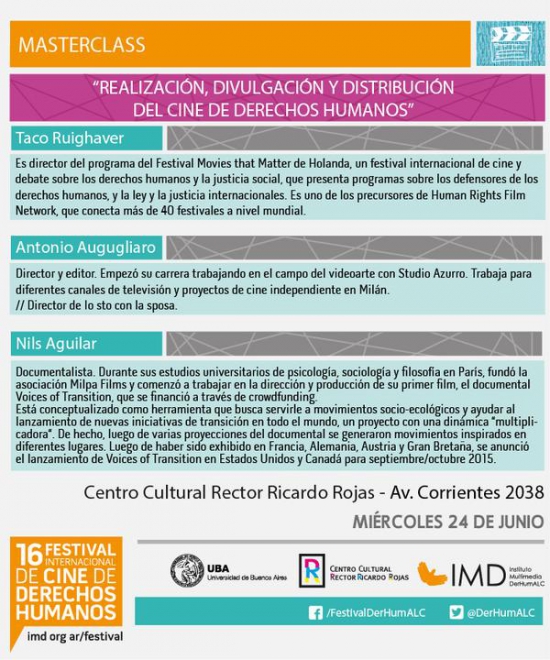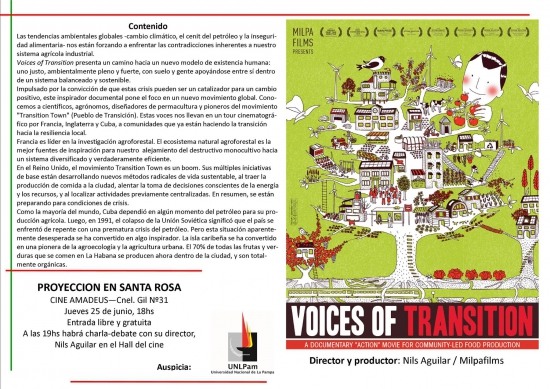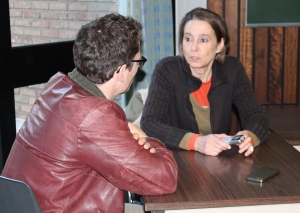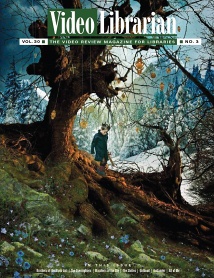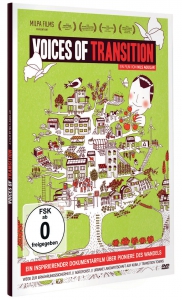Corona update: possibility of digital screening packages
We’re now also offering digital screening packages for smaller or larger audiences (e.g. for universities or schools) which can be booked for precise time slots or even, upon request, also including an online Q&A with director Nils Aguilar via Zoom.
If interested, please get in touch via email mentioning your ideas and needs.
Online-Screenings + Q&A mit Filmemacher Nils Aguilar buchen!
Corona Update: Möglichkeit von digitalen Screenings für Universitäten, Schulen oder andere Organisationen
Wir bieten zurzeit auf Wunsch auch Online-Screenings an, zu einem ermäßigten Pauschalpreis für alle Publikumsgrößen, zu denen auch ein Online Q&A (Live-Interview) mit dem Filmemacher Nils Aguilar per Zoom-Software dazugebucht werden kann.
Bei Interesse können Sie sich gerne per Email melden und uns Ihre Vorstellungen mitteilen.
Brief an die deutschen Staatsminister: Wann werden Agroforstsysteme endlich gefördert?
.pdf zum Download: Brief_Agrarminister_2018
Betreff: Agroforstsysteme fördern = positive Umweltwirkungen honorieren und Effekte des Klimawandels mindern
Cottbus, den 08. Januar 2018
Sehr geehrte Frau Staatsministerin, sehr geehrter Herr Staatsminister,
in Anbetracht des Klimawandels steht die Landwirtschaft vor der Herausforderung, ihre Wirtschaftsweise umzustellen und umweltschonender zu gestalten. Derzeit gehen in Deutschland 11 % der zum Klimawandel beitragenden Treibhausgase auf die Landwirtschaft zurück. Gemäß dem von der Bundesregierung verabschiedeten Klimaschutzplan 2050 sollen die Treibhausgasemissionen in der Landwirtschaft bis 2030 um über 30 % gegenüber 1990 reduziert werden. Gleichzeitig müssen verstärkt Landnutzungskonzepte umgesetzt werden, die dazu beitragen, negative Begleiterscheinungen des Klimawandels (z.B. zunehmender Wassermangel) abzumildern und die landwirtschaftliche Produktionskraft langfristig zu erhalten.
Darüber hinaus sind dauerhaft wirksame Maßnahmen zur Verbesserung der Wasserqualität notwendig. So befinden sich in Deutschland laut dem letzten Bericht zur Wasserrahmenrichtlinie 90 % der Oberflächengewässer in keinem guten ökologischen Zustand sowie 36 % der Grundwasserkörper in einem schlechten Zustand. Besonders problematisch sind in diesem Zusammenhang die aus der Landwirtschaft stammenden Nährstoffeinträge und hier vor allem die zu hohe Nitratbelastung.
Agroforstsysteme können bei der Lösung dieser Probleme einen wichtigen Beitrag leisten!
Agroforstsysteme sind Landnutzungssysteme, bei denen Gehölze mit Acker und/oder Tierhaltung auf einer Fläche kombiniert werden („Bäume in der Landwirtschaft“, siehe auch Bilder in Anhang 1 und weitere Info’s z.B. unter agroforst-info.de und agroforstkampagne.net). Durch ihre Strukturschaffung können in den angesprochenen Umweltbereichen und darüber hinaus große positive Umwelteffekte im Vergleich zur aktuell vorherrschenden Landbewirtschaftung erreicht werden (siehe auch Anhang 2).
Diese positiven Umweltwirkungen hat die EU bei der Konzeption ihres Förderprogrammes zur Entwicklung des ländlichen Raums (ELER-Verordnung) bereits in der letzten Förderperiode 2007-2013 sowie auch in der aktuellen Periode 2015-2020 berücksichtigt und eine Maßnahme zur Förderung der Anlage von Agroforstsystemen aufgenommen (Art. 21 EU-VO 1305/2013).
Leider hat bislang keines der deutschen Bundesländer diese Fördermaßnahme aktiviert und auch im GAK-Rahmenplan fehlt ein entsprechender Fördertatbestand. Zwar beobachten wir ein steigendes Interesse von Landwirten am Einstieg in agroforstwirtschaftliche Systeme, doch fehlt es für eine verstärkte Umsetzung an entsprechenden Anreizen im Rahmen der Agrarförderung. So bedarf es dringend einer Initialförderung bei der Anlage von Agroforstsystemen und in den ersten 5 Jahren, wie sie Art. 23 Abs. 1 der ELER-Verordnung vorsieht. Hinzu kommt, dass Agroforstsysteme zwar Greening-fähig sind, dies aber wiederum voraussetzt, dass die Anlage durch das genannte Förderprogramm gefördert wurde (siehe Art. 45 Nr. 6 der Delegierte Verordnung 639/2014). Folglich können Landwirte, die Agroforstsysteme etablieren und somit positive Umweltwirkungen bereitstellten möchten, ohne eine Aktivierung auf Ebene der Länder nicht angemessen honoriert werden.
In Brandenburg wird durch ein Konsortium aus Landwirtschaftsbetrieben und verschiedenen Interessenverbänden seit Anfang diesen Jahres ein INVEKOS-fähiger Vorschlag (unter Berücksichtigung der Kontrollfähigkeit durch Fernerkundung) für ein Förderprogramm zur Förderung von Agroforstsystemen im Bereich Agrarumwelt- und Klimamaßnahmen (AUKM) erarbeitet. Hierdurch könnte die Anlage und Bewirtschaftung von Agroforstsystemen in diesem Bundesland förderfähig werden. Dieses Programm könnte als Vorbild für entsprechende Programme in anderen Bundesländern und einen entsprechenden Fördertatbestand im GAK-Rahmenplan dienen.
Die Landwirte in unserem Nachbarland Frankreich haben bereits rund 10.000 ha moderne Agroforstsysteme auf landwirtschaftlich genutzten Flächen angelegt, wovon rd. 5.200 ha über die II. Säule der Agrarförderung gefördert werden. Frankreich hat 2015 einen Nationalen Entwicklungsplan Agroforstwirtschaft verabschiedet. Ein wesentliches Argument ist hierbei die Kohlenstoffbindung und damit der Beitrag des Landwirtschaftssektors zur Minderung der Treibhausgasemissionen im Rahmen des Pariser Abkommens des UN-Klimarats vom Dezember 2015, dessen Unterzeichner auch Deutschland ist.
Gerade vor dem Hintergrund des Klimawandels halten wir es für ausgesprochen sinnvoll, dass die Etablierung von Agroforstsystemen auch in Deutschland stärker unterstützt wird und die Agrarministerkonferenz als einen wichtigen Schritt hierfür die Förderung von Agroforstsystemen in den neuen GAK-Rahmenplan aufnimmt.
Unsere Bitte an Sie ist, diese nachhaltige Landnutzungsform in Deutschland zu fördern und sich in der Agrarministerkonferenz für die Aufnahme eines Fördertatbestandes „Anlage von Agroforstsystemen“ in den GAK-Rahmenplan einzusetzen.
Denn die Etablierung entsprechender Förderprogramme auf Landesebene wird erheblich erleichtert, wenn eine Kofinanzierung des Bundes vorgesehen ist.
Initiiert wurde dieses Anliegen im Rahmen der Forschungsgruppe AUFWERTEN (Agroforstliche Umweltleistungen Für WERTschöpfung und ENergie), die sich im BMBF-Forschungsschwerpunkt „Nachhaltiges Landmanagement“ (Fördermaßnahme „Innovationsgruppen für ein Nachhaltiges Landmanagement“) mit Agroforstsystemen beschäftigt. Ausdrücklich unterstützt wird diese Initiative sowohl von der Arbeitsgemeinschaft Agroforst Deutschland, einer Vereinigung vor allem von Wissenschaftlern, die sich der Erforschung und Förderung von Agroforstsystemen widmen, als auch von der zivilgesellschaftlichen Initiative „Agroforstkampagne“, die die Etablierung von Agroforstsystemen fördert und interessierte Landwirte berät.
Gerne erläutern wir Ihnen unsere Vorschläge auch in einem persönlichen Gespräch.
Hochachtungsvoll, stellvertretend im Namen der Initiatoren und Unterstützer
Dr. Christian Böhm
Beispiele für positive Umweltwirkungen von Agroforstsystemen, Quellenverweis ergänzen
Bei Untersuchungen im Rahmen des Forschungsprojektes AUFWERTEN konnte nachgewiesen werden, dass der Nitrateintrag ins Grundwasser unter Energieholzstreifen im Mittel um fast 99 % gesenkt werden konnte.
Agrarholzbestände können in gemäßigten Breiten pro Jahr und ha bis zu 1,2 t Kohlenstoff im Boden binden. Ergänzt wird dies durch Kohlenstoffbindung im Holz, insbesondere wenn dieses stofflich verwertet wird. Aus diesem Grund empfiehlt das gemeinsame Gutachten der wissenschaftlichen Beiräte für Agrarpolitik, Ernährung und gesundheitlichen Verbraucherschutz und für Waldpolitik als eine der wirksamsten Maßnahmen zur Minderung des Klimawandels die Förderung der Lignocelluloseproduktion in der Landwirtschaft, wie sie die Gehölzstreifen in Agrorostsystemen erbringen. Auf der COP21 hat der französische Landwirtschaftsminister als Beitrag der Landwirtschaft zur Minderung des Klimawandels die Initiative „4-Promille – Böden für Ernährungssicherheit und Klima“ ins Leben gerufen, mit dem ehrgeizigen Ziel, die weltweiten organischen Bodenkohlenstoffvorräte um 0,4 Prozent pro Jahr zu erhöhen, um die anthropogenen Treibhausgasemissionen auszugleichen. Ein Baustein in der Strategie des französischen Landwirtschaftsministeriums ist dabei auch die Förderung der Anlage von Agroforstsystemen.
Gehölzstreifen tragen zur Minderung der Winderosion bei. Der Schlag unseres landwirtschaftlichen Projektpartners wurde aufgrund der Anlage von Energieholzstreifen quer zur Hauptwindrichtung aus der Einstufung als „CCWind“ (Erosionsgefährdung durch Wind) herausgenommen, womit auch die damit verbundenen Bewirtschaftungsauflagen entfielen.
Zum Autor:
Dr. Christian Böhm
Leiter der Innovationsgruppe AUFWERTEN
Brandenburgische Technische Universität Cottbus-Senftenberg
Fachgebiet Bodenschutz und Rekultivierung Konrad-Wachsmann-Allee 6
03046 Cottbus
Weitere Links in Deutschland:
www.agroforst-info.de
www.agroforstkampagne.net
https://www.facebook.com/agroforstkampagne/
„Voices of Transition“ broadcast tonight!
My film tour in Argentina and Chile
In early may, a sudden burst of joy: „Voices of Transition“ and I (Nils) got invited to the international Human Rights Film Festival in Buenos Aires! Time for a premiere!
But should I accept the invitation and fly back and forth, how would I justify all the CO2 pollution?
In the end, what could have been a sheer nonsensical festival participation, turned into a full-blown film tour, with 11 free public screenings, organized by farmers associations, students, scientists, permacultivists and anti-glyphosate activists.
I decided to offer the public screening rights to this country, for an undefined time, herewith acknowledging the important role of my Argentinian friends in teaching me how to fight for more autonomous lifestyles. In the Andes mountains they were the Quechua and Aymara people; in Buenos Aires, the anarchist communities like the „Centro Cultural La Sala“ and the numerous MTD’s I had visited; and lastly in Patagonia, the permaculture activists from El Bolsón. Thank you, my friends!
(read the full story below!)

The premiere screening of „Voices of Transition“ in the Argentinian capital happened in the crammed library of the “Alliance Française”.
Witnessing the testimonial of Diego and Irmina after the premiere screening was very moving: Back in the 70s, this couple was persecuted by the dictatorial regime as “terrorists” because they believed in a world without repression and wouldn’t shut their mouth. Today, for a change, they are being seen as public enemies by the neoliberal elites and by the industrial farming lobbies as they believe in living soils and in the harmonious coevolution of all living beings. The world is still upside-down…
I had the high privilege to attend the movie premiere of „Los del Suelo“ in their presence, telling the story of how the young couple hid away from the paramilitary in the 70s, adopting indigenous hunting and gathering methods to survive in the woods during almost three years.
Premiere day of “Voces de la transición”. In just 90 minutes, we squeezed in…
– 2x live interviews on the National Radio (German and French speaking channel),
– 1x filmed interview by the Festival (in Spanish) and
– 1x Q&A with the public (in English and Spanish).
Oh yes, did I feel important on that day ;)
My favourite film on the festival was “On the bride’s side” (“Io sto con la spossa”), by Antonio Augugliaro. Featuring the greatest trick ever to get over European borders without problems: just dress up as a wedding team!
The exports of genetically modified soy beans today represent approx. 30 percent of the country’s total sales abroad. The trend seems unstoppable: the latest breeds are now allowing the monoculture soy model to sprawl further down into the colder South, and even into Patagonia.
The photo reads: “continue doing it” (ad from an Argentinian bank)
Santa Rosa: Alejandro and Loli, a couple of professors (history and social sciences, Universidad de la Pampa) invited me to present my film at the movie theater “Amadeus”. Both moved to Santa Rosa recently and used the „Plan Procrear“ program to build a house, thinking that here they finally would be safe from the toxic herbicide Glyphosate… Very unfortunately, now they know that their kids might soon be in the reach of the so called “moskito” planes which spray glyphosate death zones, with the “soy frontier” rapidly moving south.
The screening of “Voices of Transition” in the sold-out cinema would be the opportunity for them to launch a transition initiative in their neighbourhood.
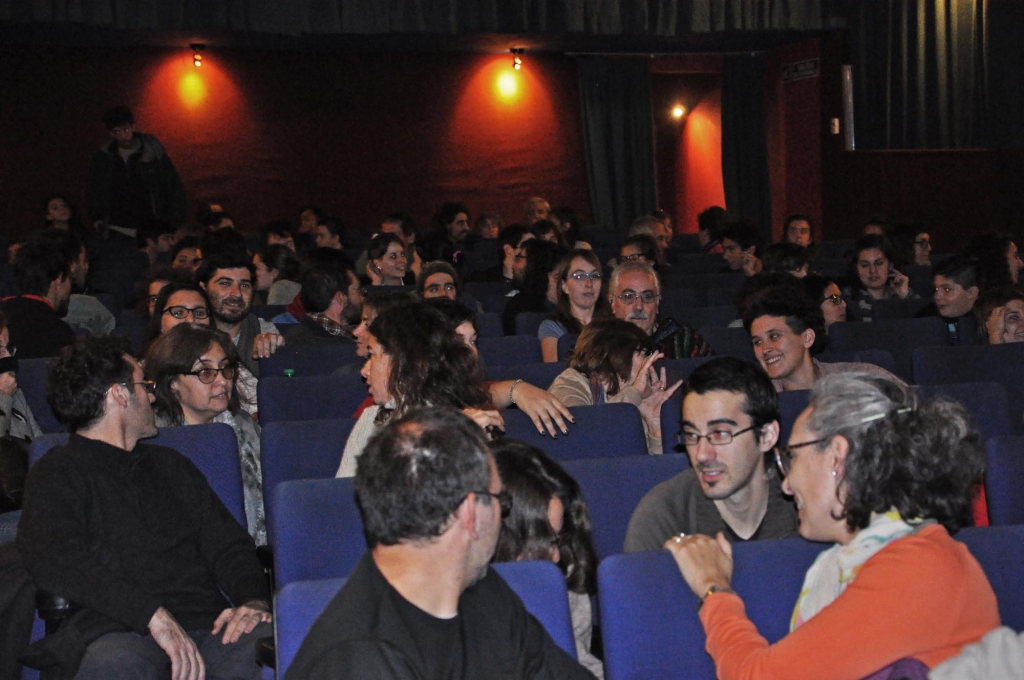
intense chatting with the „unknown neighbour“ in the theater
I love this! 120 people conversing with their “unknown neigbours“ (paradigm of the modern world) for 3 minutes, about why they attended the screening tonight. Playing this sort of game is crucial for a fruitful screening, as it actually represents the very first step for successful transition initiatives to be founded…
NB: Just think of how many more sentences are exchanged than when there’s only one guy talking in front!
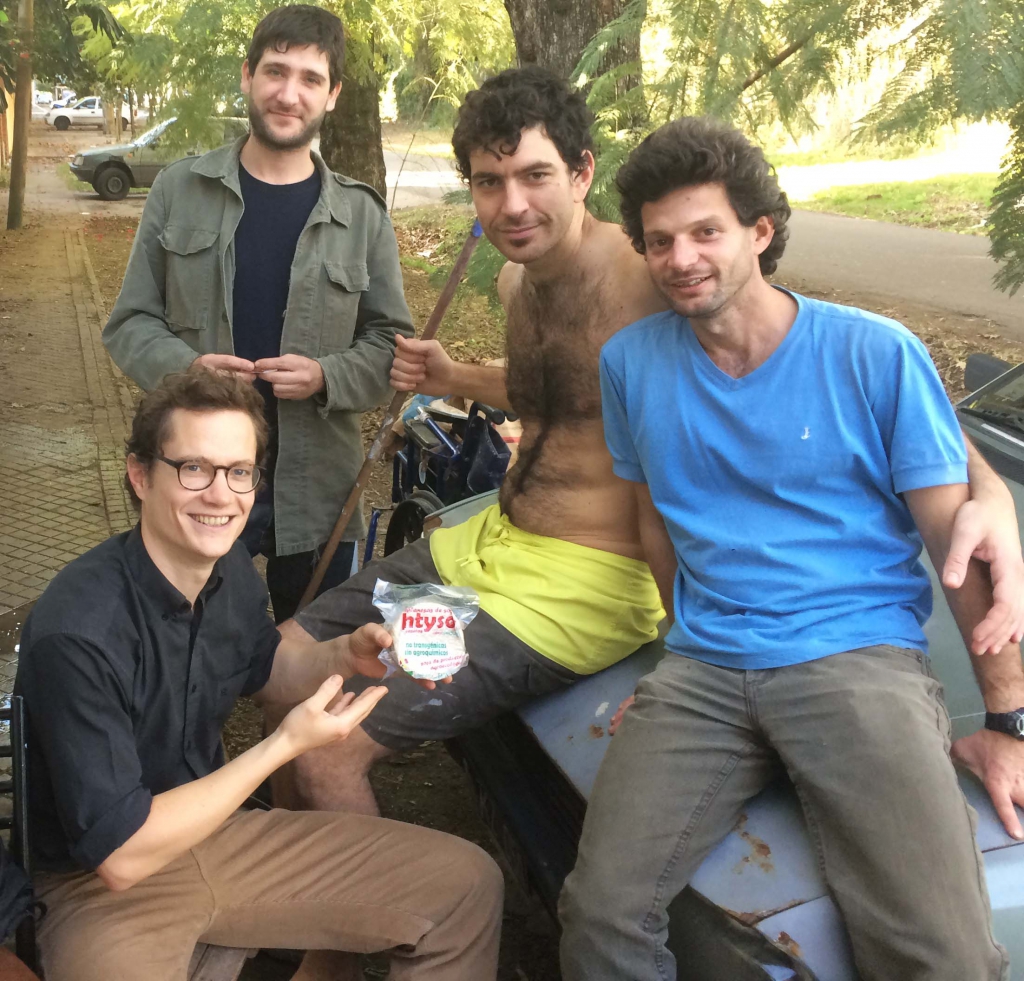
Posing with Rosarinos in their best business suits, promoting their first organic soy burger. (Alisandro, with the blue T-Shirt is teaching anthropology at University, building straw bale houses, designing permaculture gardens, and solving life riddles while drinking mate: Any problem you have, ask him!)
It’s impossible to ignore the progress of the soy invasion, and to remain unharmed. Even if you just want to peacefully enjoy a soybean free drink in a bar near the Paraná river, the soy beans will float by in the biggest bulk carriers ever invented by mankind, silently, and relentlessly. They take the road to the ports of Europe and China, where they’ll be fed to industrially-raised, non organic pigs and cattle.
The protests keep on growing. Tragically, this might also be due to the following: the more people die from Glyphosate and “Round up” (Monsanto’s toxic herbicide cocktail), the less their family members and friends have to lose when they pick the fight against the multinationals and the collaborating state.
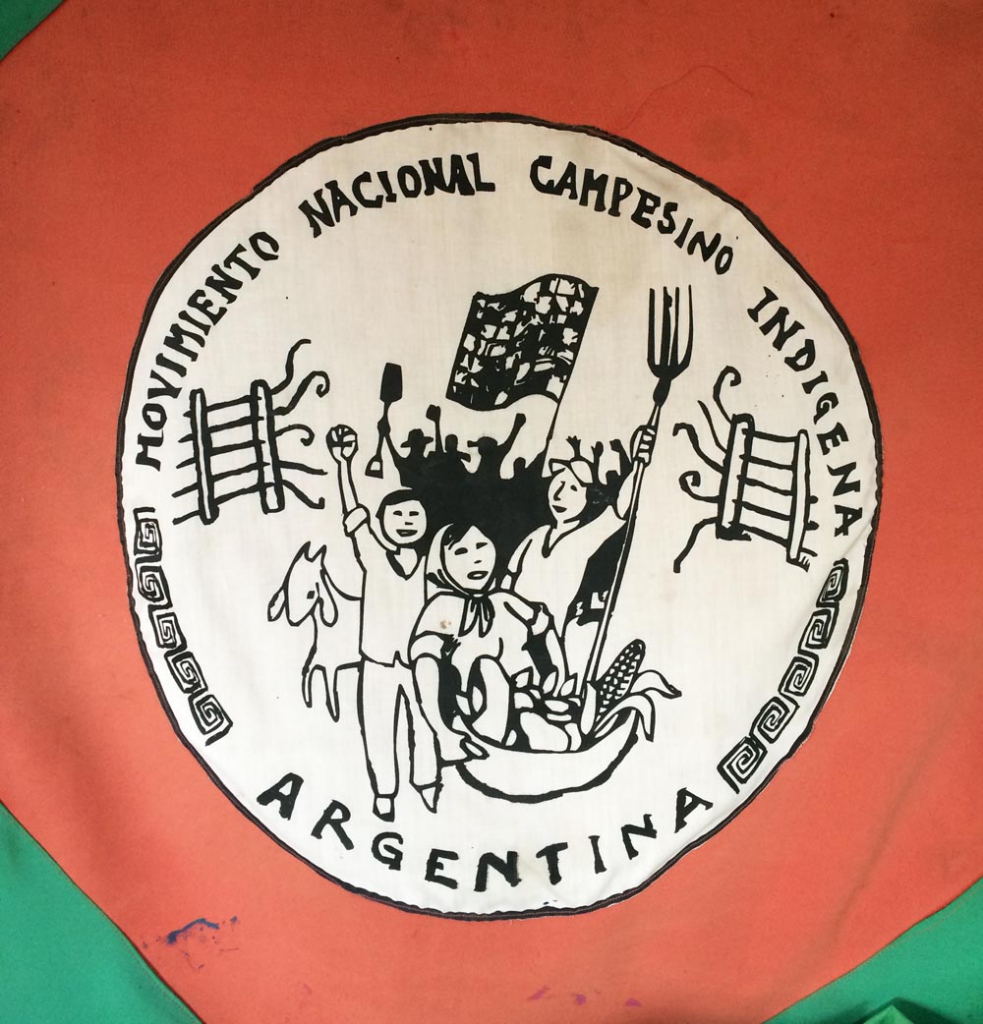
The Movimiento nacional campesino indigena is one out of numerous organisations “reclaiming the fields”.
This organisation who is some sort of a „umbrella organization“ claims to unite 500.000 farmer families…
And the movement is gaining momentum, and has its first victories to celebrate. The (illegal) construction of Monsanto’s seed processing compound (background of the photo) has been stopped, proving herewith that Monsanto is not invincible. But it takes a intolerable toll: people have to give their lives in sacrifice before things start changing…
Listen to Sofía, founder of the local fight against Monsanto, sharing with us her story and the story of her children – partly killed, partly poisoned for life – around a mate. I couldn’t retain my tears during the interview.
(Interview with Sofía Gática, all in Spanish)
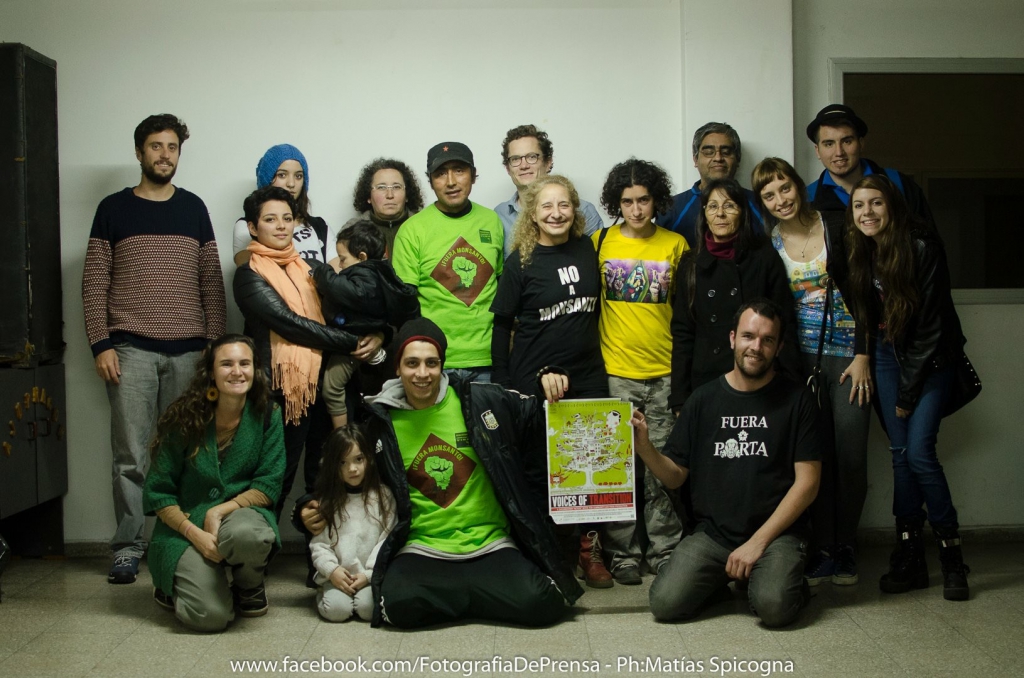
The young team of activists around Merce Cohen (yellow T-Shirt) who organized the screening in Córdoba
In Santiago del Estero, I’m offered to dress my head with a traditional “guaina” and to celebrate another good news: the province with the lowest contribution to the Argentinian GDP (which, as we all know, seems to be tightly linked to a better quality of life, intact solidarity bonds and healthy traditions) remains the unbeaten “capital de la fiesta” and the “capital del folklore argentine”! After eight consecutive screenings, it’s about time to dance those chacareras, zambas, gatos, carnavalitos, to drink wine and mate… and forget about time.
The “Patio del Indio Froilán”: where hundreds, sometimes thousands of people, old or young, from Santiago and neighbouring provinces gather each Sunday in order to get high on dancing. As opposed to most countries I’ve visited, traditional dances here still form part of all daily lives. Pachanga, Reggaeton, Salsa? Certainly not! We’re talking about Chacarera, Zamba, Gato, Escondido, Carnavalito! It’s beautiful. And handkerchiefs are finally en vogue again.
Valparaiso, on the other side of the Andes mountains. The “Sitio Eriazo” is an occupied building site. It was too dark to take a meaningful picture, but believe me it was a truly beautiful experience, because of the very special mood of this anarchic place with its numerous artistic installations, and last but not least because of the rare privilege for being served a delicious, freshly made pizza directly from the clay oven in the middle of the screening.
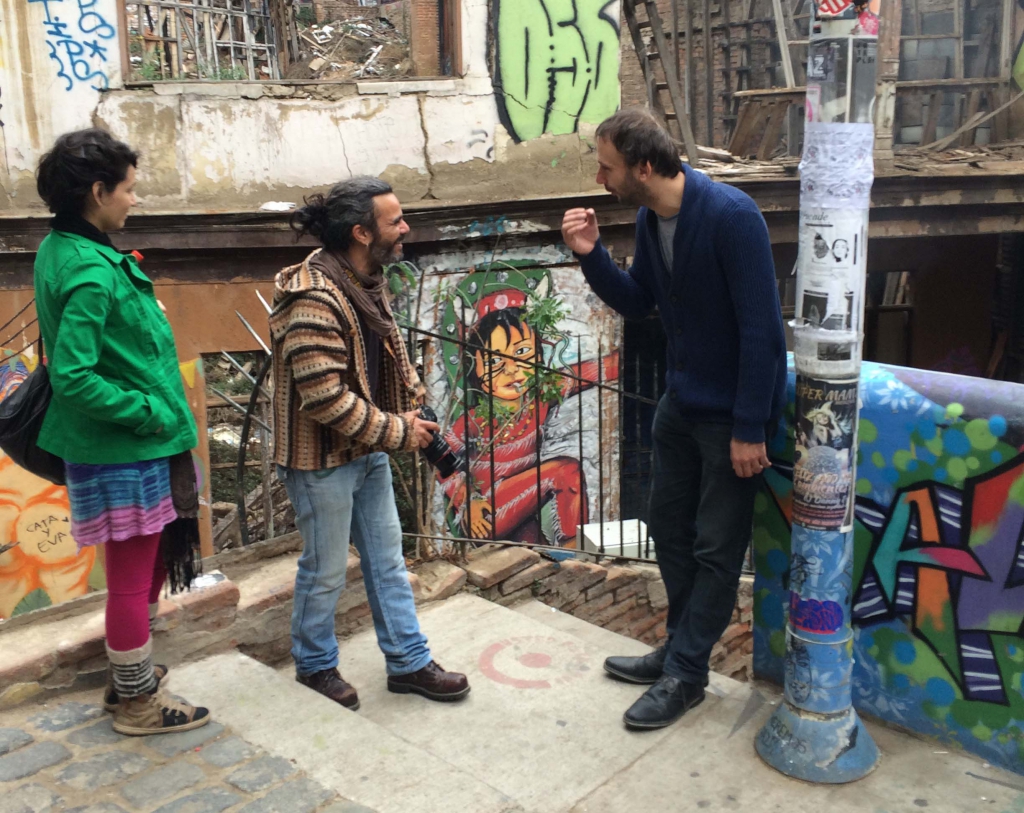
With the filmmakers Diego Marín Verdugo, Daniela More and the mathematician Nicolas Libedinsky in the streets of „Valpo“
In Chile you’ll know instantly if you’re going to be friends with someone you just met: If after just a few minutes the other person will be already starting to throw bad insults at you cheerfully, then that’s a clear sign that you’ll be friends. Fortunately enough, I really spent most of my time in Chile laughing.
https://vimeo.com/133295866
After 11 screenings in total, the final day of my stay in Chile has arrived. What a beautiful day. Thanks again to Diego Marín Verdugo for his beautiful and improvized stop motion video (music by Victor Jara).
Last but not least… many, many thanks go to the Instituto Multimedia DerHumAlc for inviting me over and for hosting for an entire week in Buenos Aires!
My warmest thanks go to the following institutions for their friendly support and for financing the plane tickets, herewith making possible this adventure: Alianza Francesa de Buenos Aires, Ambassade de France en Argentine, Heinrich Böll Stiftung Cono Sur.
Tour de Argentina 2015
„Voices of Transition“ and I got invited to the „Festival Internacional de Cine de Derechos Humanos“: Argentinian premiere time!
What to do with this incredible privilege of being invited to fly all the way (up) to the Southern hemisphere? We’ll try to turn what could have been a sheer festival participation into a tour with free screenings in La Pampa, Córdoba (with the anti-Monsanto movement), Santiago del Estero, Salta, Santiago de Chile, … !*
(read on below the tour dates)
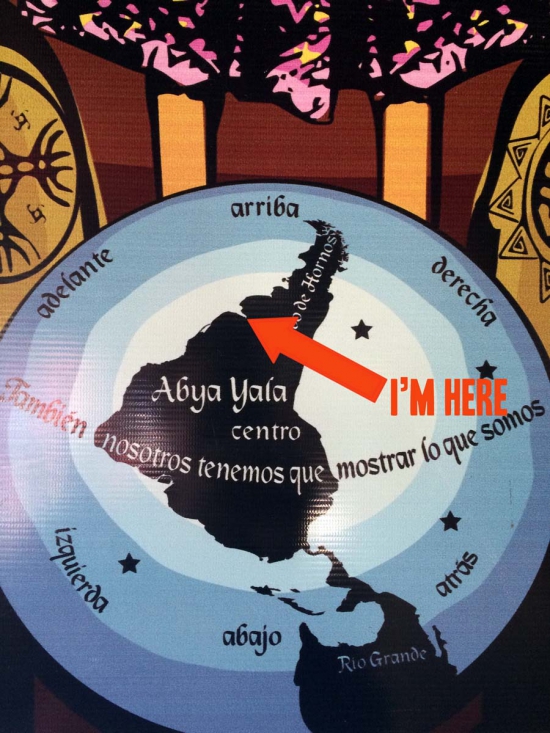
TOUR DATES
10.07. VALPARAISO
Estreno c charla debate con Nils
20:00,
Lugar Sitio Eriazo, Ecuador n°428
05.07. SANTIAGO del. ESTERO
Estreno c charla debate con Nils
entrada libre y gratuita
21:00, Café literario Utopia, calle Indepencia
02.07. CORDOBA
Estreno c charla debate con Nils
19:00, Auditorio de Radio Nacional
organizado por el GRR, facultad de agronomia,
Asamblea „Malvinas lucha por la vida“
entrada libre y gratuita
01.07. CORDOBA
Estreno c charla debate con Nils
19:00, Plaza Libertador
Festival Cofisu
al aire libre y gratuito
30.06. ROSARIO
18:30 c charla debate con Nils
C.C. Parque España
Sarmiento y El Río
entrada libre y gratuita;
http://ccpe.org.ar/events/proyeccion-del-documental-voces-de-la-transicion-de-nils-aguilar/
25.06. SANTA ROSA / LA PAMPA
Estreno con charla debate con el director
CINE AMADEUS
Cnel. Gil N°31
18:00, entrada libre y gratuita
Organizado por la Univ. de La Pampa
24.06.: BUENOS AIRES
Masterclass con Nils,
Antonio y Taco
16:00-18:00
Auditorio del C.C. Rojas,
Av. Corrientes 2038
entrada libre y gratuita
https://facebook.com/voicesoftransition
22.06.: BUENOS AIRES
Estreno & mesa debate
19:00- 21:00; biblioteca
de la Alianza Francesa
Córdoba 946
para entradas gratuitas, enviar un mail a „info@voicesoftransition.org“
https://facebook.com/voicesoftransition
20.06.: BUENOS AIRES
Estreno y debate con el director, 19:30
Centro Cultural La Sala,
Avellaneda 645,
Caballito
entrada libre y gratuita
https://www.facebook.com/events/419787901479437
18.06., BUENOS AIRES
Estreno simple 16:00-18:00
en C.C.Rojas/Batato Barea
entrada libre y gratuita
https://www.facebook.com/events/991557667556237
Finally, I’ll be able to show the film to my Argentinian friends!, I told myself, remembering that they had taken such an important role in inspiring „Voices of transition“, roughly 10 years ago, in 2005…
This was for instance when a little journalism study group from the „Universidad de las Madres de Plaza de Mayo“ by coincidence witnessed the bloody eviction of an indigenous tribe in the Jujuy area, covering it with rudimentary film equipment. The images of the beaten, broken existences still haunt my thoughts.
Another moment of crucial importance, on the positive side was to learn about „biointensive farming“ in Patagonia, to learn how to survive in an economically run-down Buenos Aires by creating micro-businesses, as observed in the MTD’s, or in the very active anarquist center „Centro Cultural La Sala“.
On that tour we’d like to learn how the shaken, but amazingly brave Argentinian people is keeping on with the struggle against corporate take-overs and the soy imperium swallowing up their fertile land, and learn how the transition movement and the self-sufficiency praxis of the „movimiento de trabajadores desocupados“ (MTD) could mutually inspire each other.
A warm appeal: Donations would be most welcome, since this tour doesn’t benefit from any financial support whatsoever (apart from the flight back and forth), and the Argentinians don’t have the dime, but a very high cost of living…
 Gracias, y saludos muy alegres!
Gracias, y saludos muy alegres!
Con mucha motivación:
Nils
If you happen to be in BsAs, read the full festival program here:
http://www.imd.org.ar/festival/descargas/grilla_ficdh_2015.pdf
…or download the catalogue:
http://www.imd.org.ar/festival/descargas/catalogo_ficdh_2015.pdf
*
On Air: Interview at Redactie Radio Centraal
As part of our May 2015 Belgium Tour, Nils hat the great honour to have a fertile little conversation with Iez in Antwerpen, aired on Redactie Radio Centraal just two days ago.
Topics included the real costs of a 1€ chocolate bar, the invention of the dung heap and how bourgeois the Transition Town movement actually is.
And here’s what they said:
(26:16)
Read the summary from Radio Centraal website article here:
Continue reading
‘Voices of Transition’ gets Video Librarian seal of approval!
We are delighted with the ‘Voices of Transition’ review as featured in the May-June 2015 print issue of Video Librarian.
You can read the review right here right now!
Interview Coco Berliner
Interview mit Nils Aguilar (coco Berliner, 15. feb

photo credit: (c) by Nadja Wehling; Interview von Katja Mollenhauer Continue reading
Seeds for a fertile spring!
get involved: UK launch on February 5th 2015
„Voices of Transition“ will finally reach the UK with a National screening day!
Voces da Transiçao em Portugal!
What a gift for a filmmaker!
The magazine @Eco123 has invited both my film „Voices of Transition“ and me to a 2 weeks „TOUR DE PORTUGAL“! Continue reading
Help us spread the word
A TOOL to create impact
Our movie’s aim is to catalyze transition wherever possible: ‚Voices of Transition‘ isn’t just a documentary film – it’s a tool to inspire communities to rediscover their collective potential. Continue reading
Macht mit beim internationalen Launch!
Ein werkzeug für den Wandel
Wir wollen mit dem Film Wandel stiften: ‚Voices of Transition‘ ist nicht nur ein Dokumentarfilm, sondern ein regelrechter Katalysator für sozialökologische Initiativen. Zwei wichtige Meilensteine sind bereits erreicht worden: Continue reading
Nur noch 4 Tage um eine DVD zu gewinnen!
Ihr habt noch 4 Tage, um über fluter.de eine Voices of Transition-DVD zu gewinnen! Continue reading
Einfach. Jetzt. Machen! Das neue Buch von Rob Hopkins
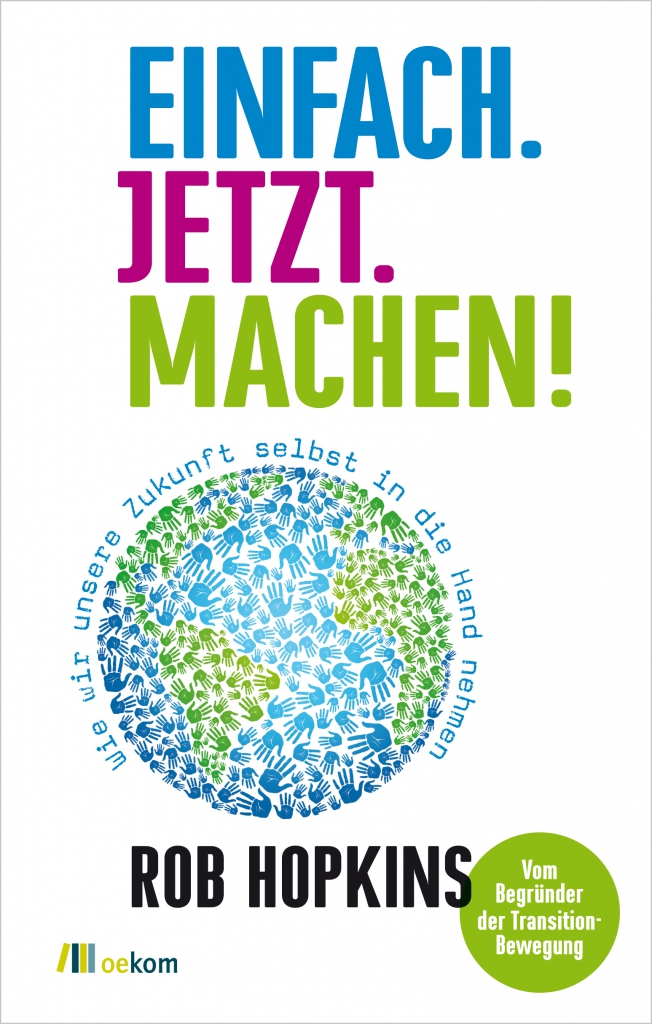 Der ganze Erdball steht Peak Oil und dem Klimawandel ohnmächtig gegenüber. Continue reading
Der ganze Erdball steht Peak Oil und dem Klimawandel ohnmächtig gegenüber. Continue reading
The Power of Just Doing Stuff: now in German!
 Have you read Rob Hopkins‘ The Power of Just Doing Stuff?
Have you read Rob Hopkins‘ The Power of Just Doing Stuff?
Heute: offizieller DVD-Start! (pünktlich zur Demo „Wir haben es satt“)
*tusssschhh*
„Sehr verehrte Damen und Herren, bitte heißen Sie willkommen, mit einem warmen Applaus: Continue reading
lesenswert: Niko Paech über grünes Wachstum
„WIR FIXIEREN UNS AUF OBJEKTE UND ERHOFFEN UNS VON IHNEN DIE RETTUNG“
Stellungnahme zur Agrarministerkonferenz am 18.01.2014
Wie grün ist grün?
Stellungnahme des deutsch-französischen Soziologen und Filmemachers Nils Aguilar zur internationalen Agrarminister-Konferenz in Berlin im Rahmen der „Grünen Woche“: Continue reading
Vandana Shiva und Sarah Wiener stehen auf „Voices of Transition“!
Im Oktober haben wir die weltbekannte Aktivistin und Trägerin des „Alternativen Nobelpreises“ Vandana Shiva bei der Global Soil Week getroffen. Ihr Kommentar zu „Voices of Transition“ war: Continue reading
Bitte? Die DVD ist da??!
Kann nicht sein??? Nach so vielen Jahren Geduldsprobe?
In wenigen Stunden wissen wir mehr…
I beg your pardon??! The German DVD version… finished and available?
Milpafilms is partner of the Colombian festival „Voces“, featuring „Voices of Transition“ for free.
Milpafilms.org is now an official partner of the „Cine Voces Festival“ in Colombia!
Kinostart am 02. Mai
Nach den erfolgreichen Auftaktveranstaltungen mit dem Hauptprotagonisten des Films, Rob Hopkins, in Bonn und in Berlin wird der Film im Kontext der Kinotour am 02. Mai im Kino starten! Continue reading
Frühlingstournee!
Germany: Frühlingstournee 2013!
Es handelt sich bei “Voices of Transition” im buchstäblichen Sinne um einen Action-Film: Statt passiv auf der Couch konsumiert zu werden, soll er die Zuschauer_innen zum Handeln animieren und zu Akteur_Innen des Wandels machen! Continue reading
Tropics in Transition?
Im Rahmen des „DR Enviromental Film Festivals“ im September fanden mehrere Vorführungen auf der Tropeninsel Hispaniola in der Dominikanischen Republik statt. Continue reading
Rob Hopkins in Bonn & Berlin – 27. & 28.02.2013
Liebe FreundInnen und Freunde der Transition Bewegung! Heute wollen wir vor allem zwei wichtige, unmittelbar bevorstehe Termine ankündigen: Die Auftakttermine zu einer Frühlingstournee von „Voices of Transition“! Continue reading
„Voices of Transition“ wins main prize in oldest environmental film festival worldwide
Hooray! Voices of Transition received the MAIN PRIZE in the category „socioecological success stories“ in the Bratislava Ekotopfilm Festival – which is the world’s biggest and oldest festival of its kind (72.000 viewers & 39th year of continuous history). Voices of Transition toured through 8 major cities from Slovakia and the Tchech Republic, with FREE entrances for everyone.
That indeed is a success story!
Vorpremierentag am „World Food Day“, dem 16. Oktober
Liebe Freunde des Films „Voices of Transition“! Ihr seid herzlich eingeladen, dazu beizutragen, dass der Film zu diesem besonderen Datum in ganz Deutschland gezeigt werden wird, und so viele Menschen wie möglich über die Ernährungskrise und die vielen brillanten Lösungsansätze informiert werden! Continue reading
